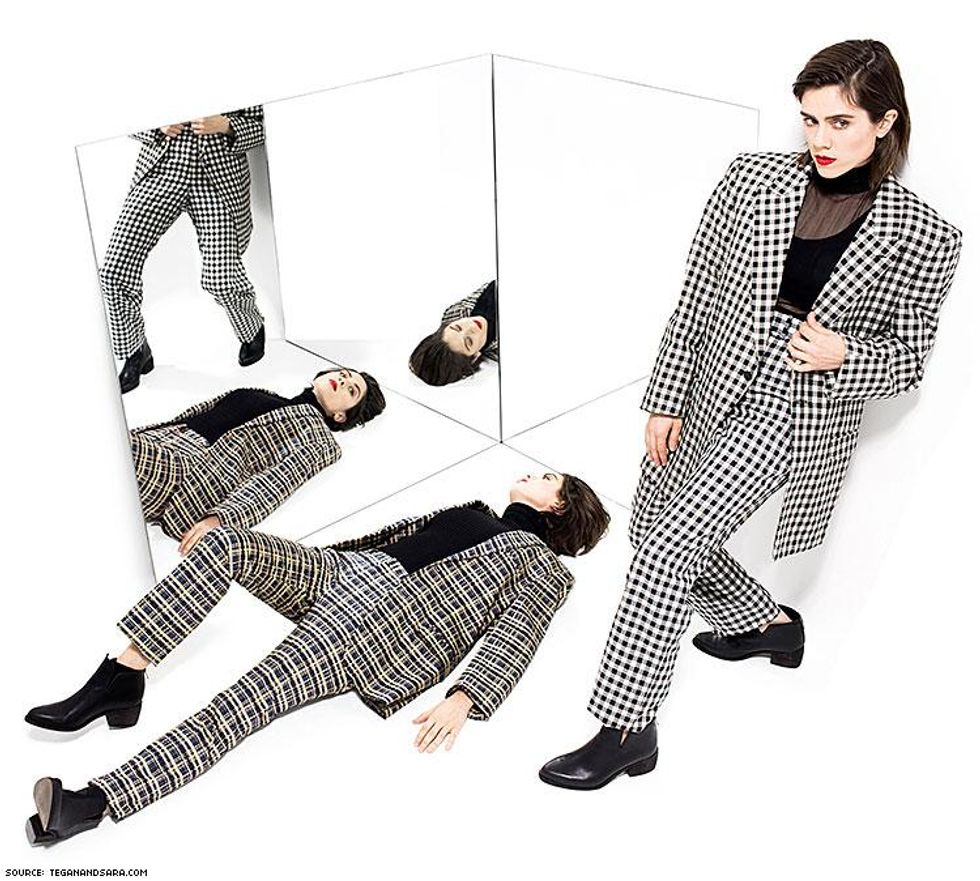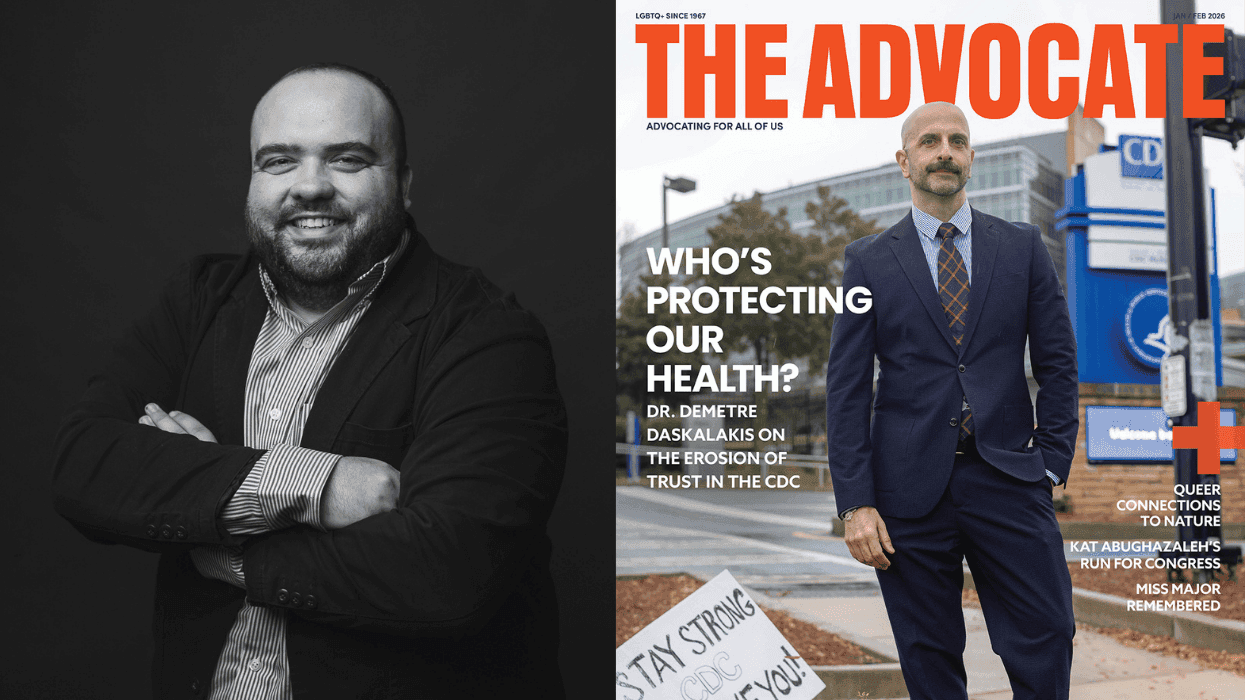Shura's debut, Nothing's Real, sealed her place as a pop star with one of the best albums of 2016. But it was "Touch," a music video released two years earlier that showed same-sex kisses, involving both male and female pairs, that spiraled Shura into viral internet fame.
The '80s-style synth-pop track about healing after a breakup launched her career. It scored her a record deal. To this date the video has more than 27 million views on YouTube.
Shura has been out of the closet since 16. Still, she made headlines in December 2015 when coming out publicly as a lesbian after the "Touch" video brought her attention. Then it was after the devastating shooting at Pulse nightclub on Latin night in Orlando that left 49 people dead that she shifted her thinking on whether it was important to be so publicly a lesbian.
"Post-Orlando, things definitely changed in my brain on whether it was important or not that I was out, and giving visibility to the community," says the 25-year-old singer. Given she comes from England, which is "more or less accepting" of LGBT people, she took acceptance for granted, she says.
Then Pulse happened, and the tragic event "inspired me to be more proactive," she says. The shooting on June 12, during Pride Month, attracted Shura for the first time to a protest, where she cried with her twin brother. Orlando made her realize that if a shooting can happen at a gay nightclub in America, it can happen in England. That's when she understood the movement for LGBT rights has a long way to go. "It's not over," says the singer. "We're in the middle of a long journey."
It was after that experience that she first met Tegan and Sara, the iconic lesbian pop duo. They had a long conversation in London about Pulse and "how bizarre it was and awful," Shura says. Shura wanted to bring visibility to the queer community with her newfound platform. Soon afterward, she joined the twin sisters on tour in the United States.
Touring with Tegan and Sara was "a dream come true," she says. "If you told teenage me that I would end up supporting Tegan and Sara for a month in North America, my head would have probably exploded."
Shura credits Tegan and Sara with challenging her to question what it means to exist as a queer artist. The duo and Shura would get together and discuss what it means to make music and be out as well as what it means to be role models. "I've never had to think about it before," she says. "I've been out since I was 16, but in terms of people being conscious that I was gay in the music world, it's only been a year, even though I never felt like I was ever hiding and it never really came up, so it was never really something that I thought about."
Now that she is thinking about it, Shura finds herself contemplating her role as a lesbian in the music world. She recalls what it was like when making plans for the music video for "What's It Gonna Be?" The video was influenced by John Hughes, the director of classic '80s movies such as The Breakfast Club, Ferris Bueller's Day Off, and Sixteen Candles.
Shura is aware that she's part of an "ongoing conversation," which means "you have to challenge yourself about the choices you make as an artist," she says.
"The choice that I make to make a John Hughes-style music video with a queer twist ... am I adding to queer culture by giving people like me who's never had a gay high school movie or should I be doing something different?" Shura asks.
It's a question many queer artists have asked themselves. Carrie Brownstein, the Portlandia actress and Sleater-Kinney musician, told The Advocate in a 2015 interview, "Each person approaches the idea of being out in a different way. You don't owe anybody anything, essentially. If you operate in the world as an actor, writer, creator, and what you owe people is to do well and to be a good writer, be a good director, be a good producer, be a good actor, and be a good person."
Shura sticks to the "be truthful" mantra, by which she means "do stuff that is true to your own experiences." A huge fan of Hughes, she wanted to pay tribute to the director by telling her own story, using his style. "I told Chloe [Wallace], who's a brilliant director, of a hilarious story about me and Nick [Shura's twin brother] growing up," Shura recalls. "The first boy that I ever kissed ended up being his boyfriend, and the first girl he ever kissed ended up being my girlfriend, and how hilarious and weird that was. So we turned it into a high school romance with a happy ending."
A fan of other queer artists such as Courtney Barnett, Christine and the Queens, Troye Sivan, and Years & Years, Shura says that she's constantly wondering, "Is the mainstream becoming more queer? Or is it the opposite? That artists like me are mainstreaming queer music?"
These are all questions without a right answer. And Shura isn't alone in wondering. When actress Ellen Page came out in 2014, she said she felt compelled to talk about it publicly because "I am tired of hiding and I am tired of lying by omission."
"I'm here today because I am gay and because maybe I can make a difference," Page said while speaking to a conference of LGBT youth, "to help others have an easier and more hopeful time. Regardless, for me, I feel a personal obligation and a social responsibility."
Shura has been surprised to have fans come up to her after gigs and say "your music gave me the courage to come out as bisexual or gay" because she recalls feeling that way about Tegan and Sara's music as a teenager. Sometimes teenage dreams do come true.
Shura will be performing at Coachella in April.
Watch Shura's"What's It Gonna Be?" music video below.
















